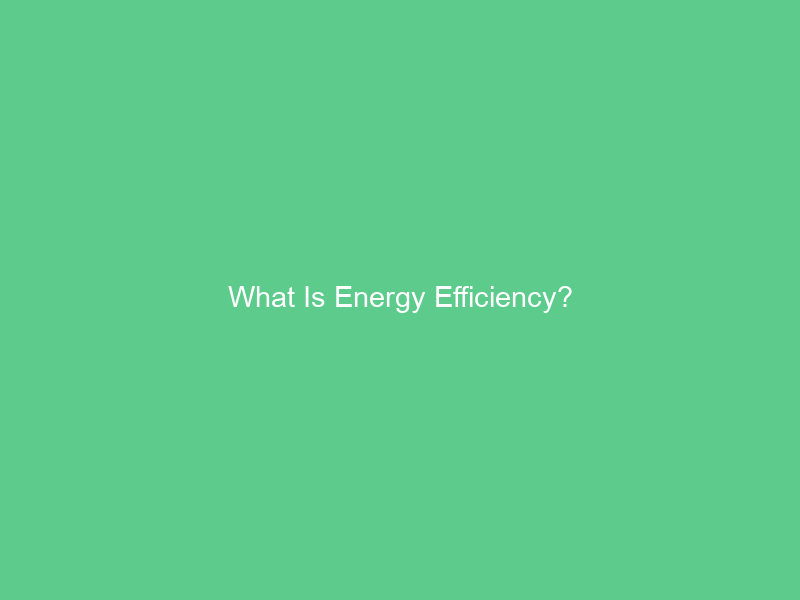Energy efficiency is one of the most cost-effective means of reducing GHG emissions. It lowers consumer costs while eliminating costly new fossil fuel infrastructure investments and decreasing operational expenses for businesses and public institutions.
NRDC works to increase energy efficiency standards for appliances, promote more fuel-efficient cars and educate consumers on simple ways they can save money – all integral parts of reaching our clean-energy goals.
Reduced carbon emissions
Energy efficiency is an effective technology for reducing carbon emissions. Already it has helped decrease fossil fuel usage across power plants, buildings and transport, according to an IEA analysis showing that energy efficiency alone provides 40% of global abatement needed to hold temperature increases within 2degC limits.
Examples include new and existing buildings reducing emissions with efficient insulation, lighting and appliances; transport can reduce its emissions with efficient vehicle technologies and driving habits; while in the industrial sector, efficiency can make an enormous impact through strategic energy management, process improvements (such as electrification), or shifting feedstock sources.
Energy efficiency saves consumers, businesses and governments money on energy bills; it may even be cheaper than adding new generation capacity! Energy efficiency allows economies to reduce reliance on subsidies for keeping prices low; furthermore it helps decrease future fossil fuel extraction/processing requirements and makes renewables more affordable.
Saved money
Energy efficiency reduces utility bills by decreasing electricity demand and, thus, the need for new power generation and transmission capacity. Savings generated through efficiency measures also help stabilize prices and minimize volatility in the market.
Installing energy efficient light bulbs, air conditioners, dishwashers and smart thermostats can significantly lower both electricity costs and your carbon footprint. Rebates may be available for many of these technologies as well as others.
Families facing high energy burdens may benefit from lower bills that allow them to allocate funds more wisely, such as food purchases. Energy efficiency improvements may also help address energy insecurity – when families have to decide between paying their monthly energy bill or buying food.
Take steps to increase energy efficiency in your business as a sign of social responsibility, as studies have proven this is more productive environments for employees than working for less eco-friendly firms.
Better health
Energy efficiency refers to using less energy in order to accomplish tasks or produce goods, whether that means using energy-saving equipment like LED lights with reduced power usage or optimizing heating and cooling systems for greater energy savings.
Energy efficiency offers many advantages both to homes and businesses alike. A study revealed that employees working in energy-efficient facilities were more productive than those occupying non-efficient facilities.
Energy efficiency provides many health advantages, as its primary benefit can be seen in reduced incidence of cold-related illness and mortality rates in homes that are properly insulated, according to studies of home energy efficiency schemes in the UK. Furthermore, such schemes have led to decreased hospital admissions related to cardiovascular and respiratory illnesses associated with living in cold homes; additionally it reduces greenhouse gas emissions contributing to climate change as well as improving outdoor air quality and decreasing acid rain.
Better environment
Energy efficiency refers to using less energy for performing tasks or producing desired outcomes, and can help both homes, buildings, and businesses use less power for heating/cooling/operating appliances/electronics/lighting rooms/etc. Lighting fixtures rated with the ENERGY STAR label consume up to 90% less power than their traditional incandescent equivalents.
Conserving energy helps reduce carbon dioxide emissions that contribute to climate change. Energy efficiency also protects water resources and wildlife habitats by decreasing dependence on fossil fuels.
Energy efficient upgrades usually pay for themselves with lower utility bills and improved living conditions for households, freeing up savings to invest in other home improvements or save toward future energy-saving initiatives. Furthermore, homes that generate excess electricity may even sell it back to their power company to avoid paying peak demand charges and lower overall electricity usage. Businesses that promote energy efficiency help boost employee morale and boost profits.

